History Events

What are some common mistakes students make when studying history, and how can they be avoided ?
When studying history, students often make mistakes that hinder their understanding and retention of the subject matter. Here are some common pitfalls and strategies to avoid them: 1. **Not Understanding the Big Picture**: Many students focus on memorizing dates and events without grasping the broader context or interconnectedness of historical occurrences. To avoid this, they should contextualize information, seek connections between events, and utilize visual aids like maps and timelines. 2. **Relying Solely on Rote Memorization**: Merely memorizing facts without comprehension leads to short-term retention at best. Students should engage with the material actively, apply historical concepts, and try teaching the subjects to others to reinforce their understanding. 3. **Ignoring Primary Sources**: Some students rely solely on secondary sources, neglecting primary sources that offer firsthand accounts of historical events. Incorporating and critically analyzing primary sources can provide a fuller, more nuanced understanding of history. 4. **Failing to Connect History with Other Subjects**: Treating history as isolated from other disciplines limits its educational potential. Students should explore interdisciplinary connections, integrate different perspectives, and participate in cross-curricular projects to deepen their historical knowledge. By avoiding these pitfalls, students can enhance their understanding of history and develop valuable critical thinking skills.
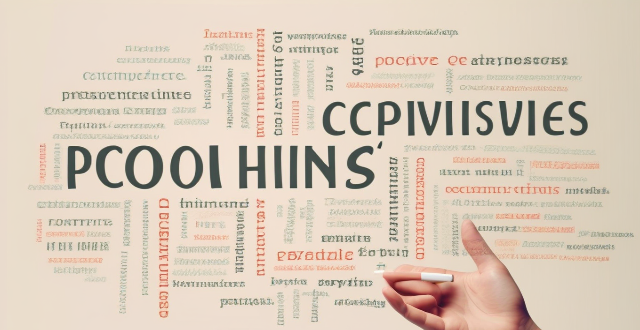
How can I develop critical thinking skills while learning about history ?
This text provides a comprehensive guide on how to develop critical thinking skills while learning about history. It starts by emphasizing the importance of understanding the basics and questioning everything. The author then suggests analyzing sources, connecting the dots, debating and discussing, reflecting and reevaluating, applying historical knowledge, practicing writing, and staying curious. By following these steps, readers can enhance their ability to think critically about various subjects and gain a deeper understanding of history.
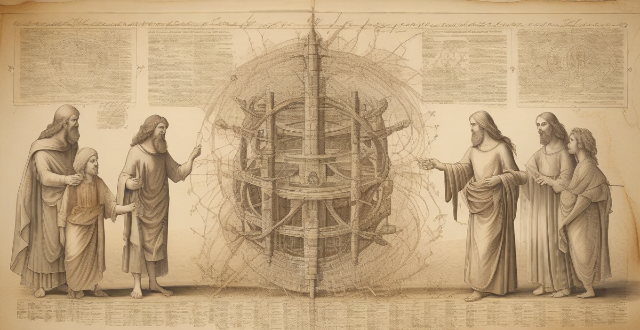
How can I make history more interesting and engaging to learn ?
To make history more interesting and engaging to learn, consider storytelling techniques, incorporating multimedia, connecting historical events to the present, encouraging critical thinking, engaging in hands-on learning, and personalizing the learning process. These strategies can help transform history from a monotonous subject into a vibrant and captivating area of study.
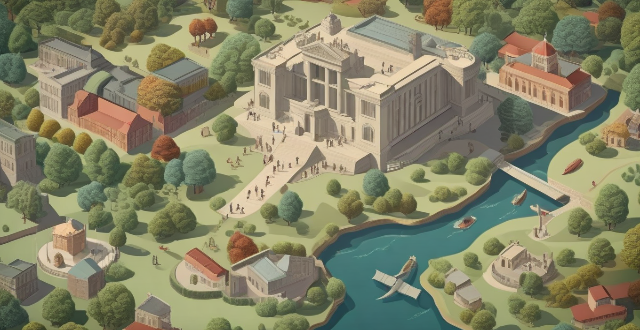
What resources are available online for studying history ?
This article provides a comprehensive list of online resources for studying history, including digital libraries and archives, online courses and lectures, encyclopedias and dictionaries, virtual museums and exhibits, and forums and discussion groups. The resources offer access to historical documents, photographs, lectures, articles, artifacts, and discussions with fellow enthusiasts. The article emphasizes the importance of utilizing these resources to gain a deeper understanding of historical events and periods.
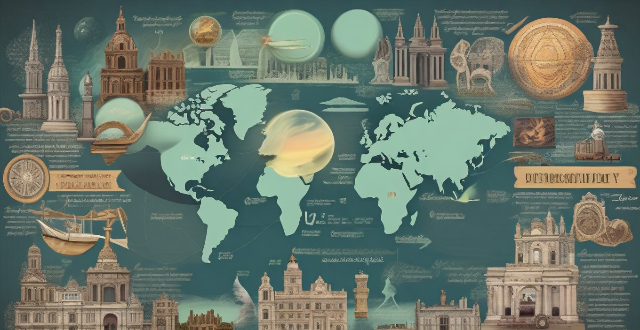
How can I apply what I've learned in history to real-world situations and current events ?
The text discusses the importance of applying historical knowledge to real-world situations and current events. It provides ten ways to apply historical knowledge, including contextualizing current events, analyzing causation, predicting outcomes, informing decision making, promoting critical thinking, enhancing cultural understanding, improving communication skills, developing empathy, informing policy and advocacy, and inspiring creativity and innovation. The conclusion emphasizes that connecting the dots between past and present can help make more informed decisions and work towards a better future.

How have extreme weather events affected human societies throughout history ?
Throughout history, extreme weather events have had a significant impact on human societies. These events include hurricanes, tornadoes, floods, droughts, wildfires, and heatwaves. They have caused damage to property, loss of life, and long-term economic and social consequences. In this article, we will explore how these extreme weather events have affected human societies throughout history. Hurricanes are one of the most destructive extreme weather events. They can cause widespread damage to buildings, infrastructure, and crops. For example, Hurricane Katrina in 2005 caused over $125 billion in damages and was responsible for the deaths of over 1,800 people. Tornadoes are another type of extreme weather event that can cause significant damage to property and loss of life. They can occur suddenly and without warning, making them particularly dangerous. For instance, the Tri-State Tornado in 1925 killed 695 people and injured over 2,000 others across three states. Floods are another extreme weather event that can have devastating effects on human societies. They can destroy homes, businesses, and infrastructure, leading to economic losses and displacement of people. For example, the 2004 Indian Ocean tsunami caused over $10 billion in damages and was responsible for the deaths of over 230,000 people. Droughts are extreme weather events that can cause crop failures and water shortages. They can lead to famine and economic hardship for communities that rely on agriculture for their livelihoods. For instance, the Dust Bowl drought in the 1930s caused widespread crop failures and forced many farmers to abandon their land. Wildfires are another extreme weather event that can cause significant damage to property and loss of life. They can also lead to air pollution and health problems for those living near affected areas. For example, the 2018 California wildfires caused over $16 billion in damages and were responsible for the deaths of over 100 people. Heatwaves are extreme weather events that can cause heat-related illnesses and death among vulnerable populations such as the elderly and young children. They can also lead to power outages and disruptions in transportation systems. For instance, the 2003 European heatwave caused over 70,000 deaths across several countries. In conclusion, extreme weather events have had a significant impact on human societies throughout history. From hurricanes to droughts to wildfires, these events have caused damage to property, loss of life, and long-term economic and social consequences. As climate change continues to exacerbate these events, it is essential that we take steps to mitigate their impact on our communities and prepare for future disasters.

How do local snacks reflect the culture and history of a city ?
Local snacks are not just tasty treats; they often serve as a window into the culture and history of a city. Geographical location, climatic conditions, socio-economic conditions, historical events, religious beliefs, and cultural exchanges all play significant roles in shaping local snack traditions. Coastal cities may have seafood dishes, mountainous regions may have cheese or meat-based delicacies, and tropical regions may have fruit-based desserts. Trade routes and colonization have brought about exchanges of ingredients and cooking techniques that shape local snack traditions. Religious beliefs can also play a role in shaping snack culture. Immigration and cultural exchanges bring new flavors and ideas to local snack scenes. In conclusion, local snacks are deeply intertwined with the culture and history of their origin city.
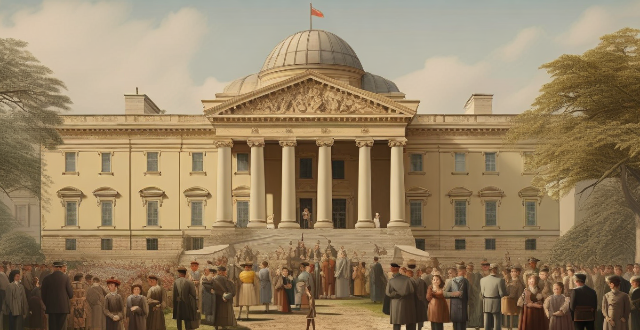
What are the best museums in South America to learn about local history and culture ?
South America is home to fascinating museums showcasing the region's history and culture. The **Museo del Oro** in Bogotá, Colombia, features pre-Columbian gold artifacts, while the **Museo Histórico Nacional** in Santiago, Chile, offers a broad overview of Chilean history. The **Museu Histórico Nacional** in Rio de Janeiro focuses on Brazil's imperial past, and the **Museo de la Memoria** in Santiago confronts Chile's military dictatorship. Finally, the **Museo de Arte Precolombino** in Lima showcases the artistic achievements of ancient Peruvian civilizations. Each museum provides unique insights into South American history and culture.
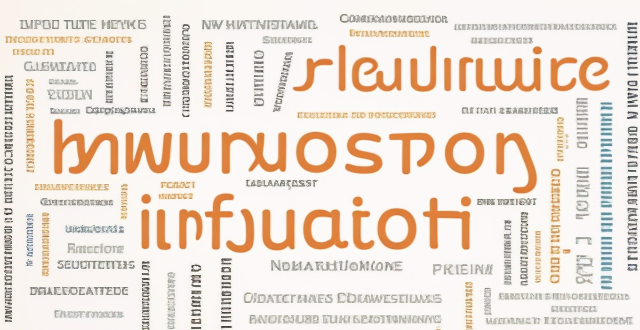
How does credit history influence insurance rates ?
The text discusses how credit history influences insurance rates. Insurers use credit history as a predictor of future claims and risk, with studies showing that individuals with poor credit histories are more likely to file claims and cost insurers more money than those with good credit histories. Several factors can affect insurance rates based on credit history, including payment history, amount owed, length of credit history, and types of credit used. Maintaining a strong credit history can potentially save money on insurance premiums and demonstrate financial responsibility to insurers.

Is it possible to hide my purchase history in my Apple account ?
Hide your purchase history in your Apple account by following these steps: sign in to your Apple ID account, go to the "Account" section, find the "Purchase History" option, click on the "Hide All" button, confirm the action, and check your purchase history.

How can I improve my credit score and maintain good credit history ?
Maintaining a good credit score is vital for securing loans, mortgages, and even some jobs. To improve your credit score and maintain good credit history, consider the following tips: 1. Pay bills on time to avoid late payments that can significantly impact your credit score. 2. Avoid defaulting on loans by contacting the lender to discuss options if you're struggling to make payments. 3. Keep balances low and increase credit limits to lower your utilization rate. 4. Keep old accounts open and space out applications for new credit to maintain a healthy length of credit history. 5. Diversify your types of accounts to show that you can handle different types of credit responsibly. 6. Limit hard inquiries and apply for credit only when necessary. 7. Check your credit report regularly to ensure there are no errors or fraudulent activity dragging down your score. 8. Use credit wisely and monitor your credit score to keep an eye on progress. 9. Educate yourself on how FICO scores work and the factors that influence them to make more informed financial decisions. By following these guidelines, you can establish and maintain a strong credit profile that will serve you well in your financial life.
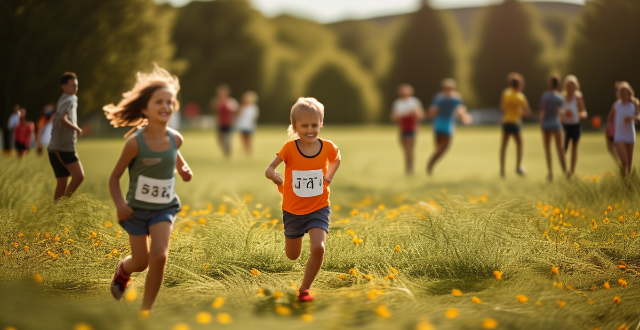
How do major sporting events like the Olympics impact international relations ?
Major sporting events, such as the Olympics, have a significant impact on international relations. These events promote diplomatic ties between nations, enhance cultural exchange, provide economic benefits, showcase national pride, and encourage peace and unity among countries. By bringing together athletes from different countries, cultures, and backgrounds, these events create a platform for dialogue and understanding, fostering stronger relationships and promoting a more harmonious world.

How can we celebrate cultural diversity through festivals and events ?
Celebrating cultural diversity is a beautiful way to foster understanding, respect, and appreciation for different cultures. Festivals and events are perfect platforms for this celebration as they bring people together in a festive atmosphere that encourages sharing and learning about diverse traditions. Here's how we can celebrate cultural diversity through festivals and events: Inclusivity in Planning and Participation: To ensure that cultural diversity is celebrated genuinely, it's essential to involve members from various cultural backgrounds in the planning and execution of festivals and events. This approach ensures that traditions are represented authentically and respectfully. Showcasing Cultural Arts and Performances: Artistic expressions like music, dance, theater, and visual arts are integral to many cultures. Featuring these during festivals allows attendees to experience the depth and beauty of different cultural art forms. Food Festivals and Culinary Experiences: Food is a universal language that transcends borders. Organizing food festivals or culinary workshops that highlight dishes from various cultures can be a delightful way to celebrate diversity. Educational Workshops and Discussion Panels: Providing opportunities for learning and dialogue enhances the understanding of different cultures. Workshops and panel discussions can cover topics like history, traditions, and contemporary issues affecting various cultural groups. Community Interaction and Networking: Festivals and events should encourage interaction among participants to build connections and foster a sense of community. These interactions can lead to lasting friendships and mutual respect among diverse groups. Respectful Representation: When celebrating cultural diversity, it's crucial to ensure that representations are respectful and avoid stereotyping or caricatures. Research and collaborate with cultural representatives to ensure accuracy and sensitivity in all aspects of the event.

Is it safe to start an exercise program if you have a history of heart problems ?
Starting an exercise program is generally beneficial for overall health, but it's important to take precautions if you have a history of heart problems. Here are some factors to consider: 1. Consult with your doctor before starting any exercise program, especially if you have a history of heart problems. 2. Start slowly and gradually increase the intensity and duration of your workouts over time. 3. Choose low-impact exercises such as swimming, cycling, or yoga to improve cardiovascular health without putting too much strain on your heart. 4. Monitor your symptoms during and after exercise, and stop immediately if you experience any symptoms such as chest pain, shortness of breath, or dizziness. 5. Stay hydrated and nourished by drinking plenty of water and eating a healthy diet that includes plenty of fruits, vegetables, whole grains, and lean proteins.

How do extreme weather events relate to climate change ?
Extreme weather events, such as hurricanes, heatwaves, floods, and droughts, have become more frequent and intense in recent years due to climate change caused by human activities. Climate change leads to increased temperatures, changes in precipitation patterns, stronger storms, and impacts on ecosystems. Examples of extreme weather events linked to climate change include Hurricane Sandy, Australian Bushfires, European Heatwaves, and the Indian Ocean Dipole. It is crucial to take action to mitigate the effects of climate change and adapt to the changing climate.

How have historical events impacted the acceptance and participation of women in various sports throughout time ?
The text discusses how historical events and societal norms have influenced women's participation in sports throughout history. In ancient civilizations like Greece and Rome, women were generally excluded from athletic competitions due to cultural beliefs and expectations about their roles. During the Middle Ages, their involvement remained limited, with some exceptions for practical purposes. The Industrial Revolution brought slight progress as leisure time increased, but gender stereotypes still hindered women's participation. Pioneering figures in the late 19th and early 20th centuries began promoting women's sports, leading to the inclusion of women's events in the Olympics. After World War II, there was a push for gender equality, including in sports, resulting in increased opportunities for female athletes. Today, while women participate in a wider range of sports than ever before, challenges such as unequal treatment persist, requiring continued advocacy for gender equity in sports.
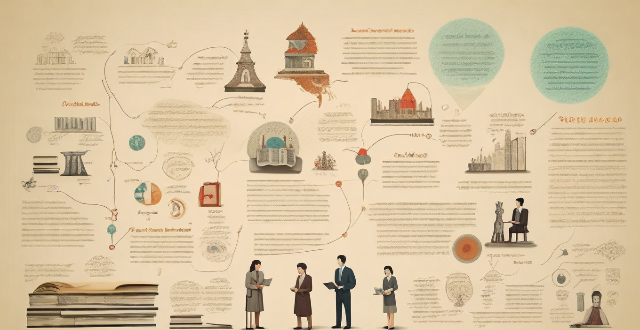
What are some effective study techniques for learning history ?
Effective study techniques for learning history include understanding chronological order, using visual aids, active reading, group study, practice writing, connecting historical events with the present, using multimedia resources, and visiting museums and historical sites. These methods can help deepen understanding and make the subject more engaging and rewarding.

How can networking events help me enhance my personal image ?
Attending networking events can significantly enhance your personal image by establishing industry presence, expanding professional circles, offering learning opportunities, showcasing expertise, and building a positive reputation. To make the most out of these events, dress appropriately, be prepared with an elevator pitch, practice active listening, follow up with connections, and contribute value whenever possible. These strategies not only improve your professional image but also open doors to new opportunities and collaborations.

What are some examples of recent extreme weather events ?
This article discusses recent examples of extreme weather events that have caused significant damage to human life, property, and the environment. These include Hurricane Ida (2021), Australian Bushfires (2019-2020), California Wildfires (2020), European Heatwave (2019), Japanese Typhoon Hagibis (2019), and Indian Cyclone Amphan (2020). The article concludes by emphasizing the need for individuals, communities, and governments to take action to mitigate the effects of these events and adapt to changing weather patterns.
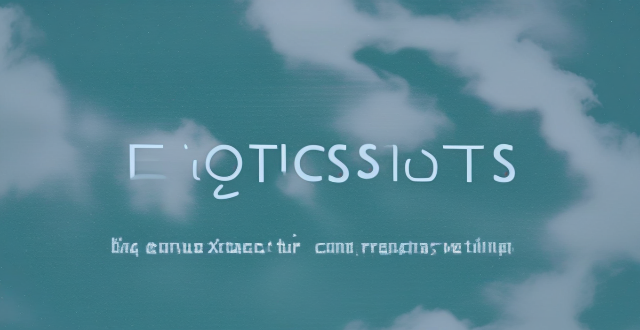
How can extreme weather events caused by climate change affect the scheduling of sporting events ?
The text discusses the impact of extreme weather events caused by climate change on the scheduling of sporting events. It highlights how these events can lead to cancellations or postponements, changes in venue conditions, travel disruptions, and reduced fan attendance. The text emphasizes the need for sports organizations and venues to develop strategies for dealing with these challenges to ensure the safety and enjoyment of all those involved in sporting events.

What are some strategies for taking effective notes during history classes ?
Strategies for taking effective notes during history classes include preparation, active listening, organization, key terms and concepts, visual aids, summarizing, and review and revise. Preparation involves having necessary materials and reviewing assigned readings. Active listening requires focusing on the instructor's words and connecting them with the readings. Organization means using a consistent format for notes, such as bullet points or outlines. Key terms and concepts should be written down, and visual aids like diagrams or timelines can help visualize information. Summarizing main points after each class reinforces understanding, and regular review and revision of notes can improve retention.

What are the benefits and drawbacks of virtual fan support events compared to in-person events ?
Virtual fan support events provide global accessibility, cost-Virtual fan support events provide global accessibility, cost- benefits but face challenges like limited cost-effectiveness, and safety benefits but face challenges like limited personal interaction and technical issues. Finding a balance between virtual and in-person events is crucial for meaningful connections.

How can I improve my understanding of historical events and dates ?
To enhance your understanding of historical events and dates, start with introductory books for a broad overview before diving into subject-specific literature. Watch educational videos and documentaries for visual learning. Visiting museums and historical sites offers tangible connections to the past. Engaging with online courses and lectures provides expert insights. Participating in discussion groups and forums exposes you to different perspectives. Creating timelines and taking notes aid memory retention. Integrating various sources through cross-referencing and critical thinking fosters a well-rounded understanding of history.
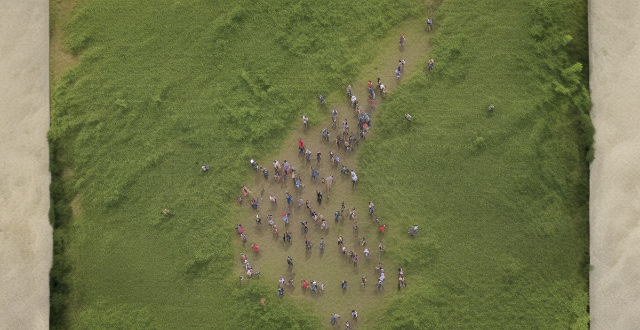
What kinds of questions should I expect during the insurance application process ?
When applying for insurance, you will be asked a variety of questions to assess your risk level and determine the appropriate coverage and premiums. These questions cover personal information, employment details, health history, lifestyle habits, driving record, insurance history, financial information, beneficiaries and dependents, and additional questions related to hobbies, travel plans, and pets. Honesty is crucial when answering these questions as providing false information can result in denied claims or policy cancellation. It's essential to review your application carefully before submitting it to ensure all information is accurate and complete.
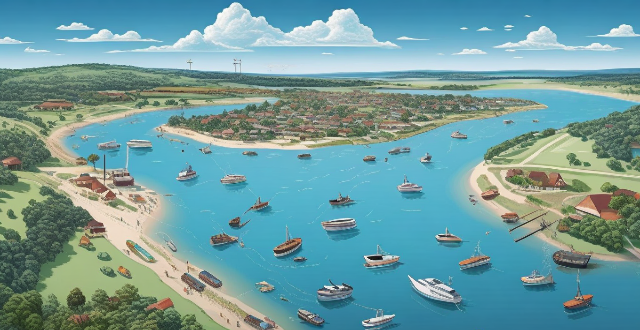
How do extreme weather events influence biodiversity and ecosystems ?
Extreme weather events, such as flooding, drought, and heatwaves, significantly impact biodiversity and ecosystems. These events can cause habitat loss, species adaptation, and altered ecosystem structure and functioning. It is crucial to understand these impacts and take action to mitigate them through conservation efforts and climate change adaptation strategies. By doing so, we can help protect our planet's diverse flora and fauna and ensure the continued health of our ecosystems for future generations.
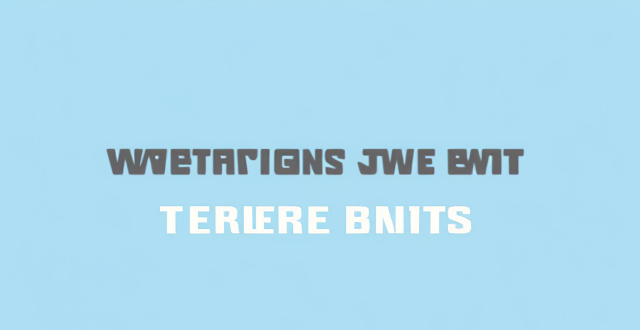
What impact do extreme weather events have on consumer purchasing habits ?
Extreme weather events, such as hurricanes, floods, and heatwaves, significantly impact consumer purchasing habits. These changes in buying behavior are often driven by necessity, fear, and the desire to be prepared for future events. The text discusses the various ways extreme weather events can influence what and how consumers purchase. It also highlights the need for businesses and retailers to adapt to meet the changing demands and priorities of their customer base.
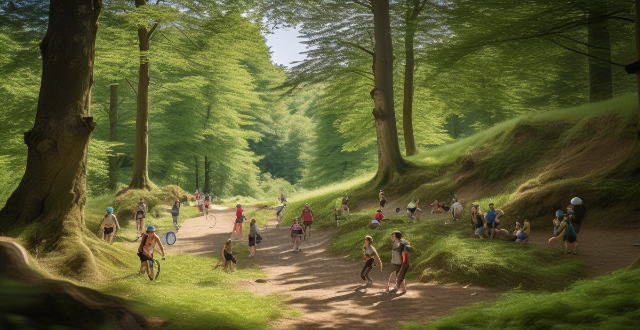
Can sports events promote peace between nations ?
Sports events can promote peace between nations by breaking down barriers, fostering cultural exchange, and providing a platform for diplomatic engagement. Historical and modern-day examples show the potential of sports diplomacy, but challenges such as political interference and commercialization must be considered. Overall, sports have the power to bring people together and promote understanding, making them a valuable tool for promoting peace.
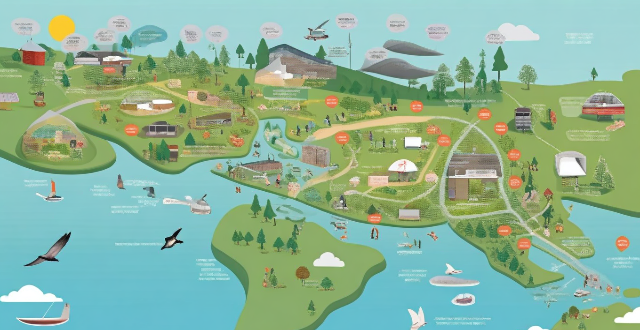
How do extreme weather events affect global climate change ?
Extreme weather events, such as hurricanes, floods, droughts, and heatwaves, have a significant impact on global climate change. They can exacerbate existing climate conditions and contribute to the overall warming of the planet by increasing greenhouse gas emissions, affecting ecosystems and biodiversity, disrupting agriculture and food production, and impacting human health and well-being. It is essential that we work together to mitigate the effects of extreme weather events and address the root causes of climate change to ensure a sustainable future for all.
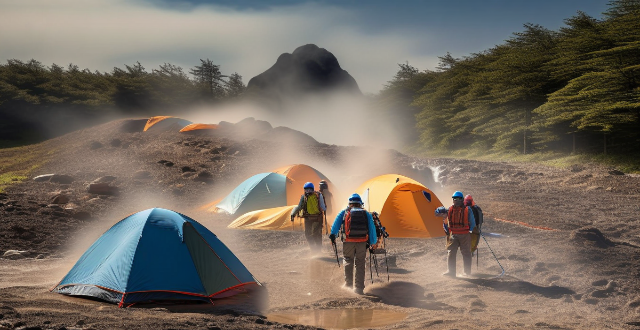
How can we predict and prepare for extreme weather events ?
Predicting and preparing for extreme weather events is a critical aspect of modern society. With advancements in technology and scientific research, we now have the ability to forecast these events with greater accuracy than ever before. However, predicting and preparing for extreme weather events requires a multi-faceted approach that involves both scientific knowledge and practical preparation. In this article, we will explore some of the key ways in which we can predict and prepare for extreme weather events.

How do fan support events differ between music genres or cultures ?
The text discusses the variations in fan support events across different music genres and cultures. It highlights how these events differ in terms of concert tours, meet and greets, signings, fan clubs, and online communities. The examples provided illustrate the unique traditions and practices associated with each genre or culture, showing how artists connect with their audiences in diverse ways.